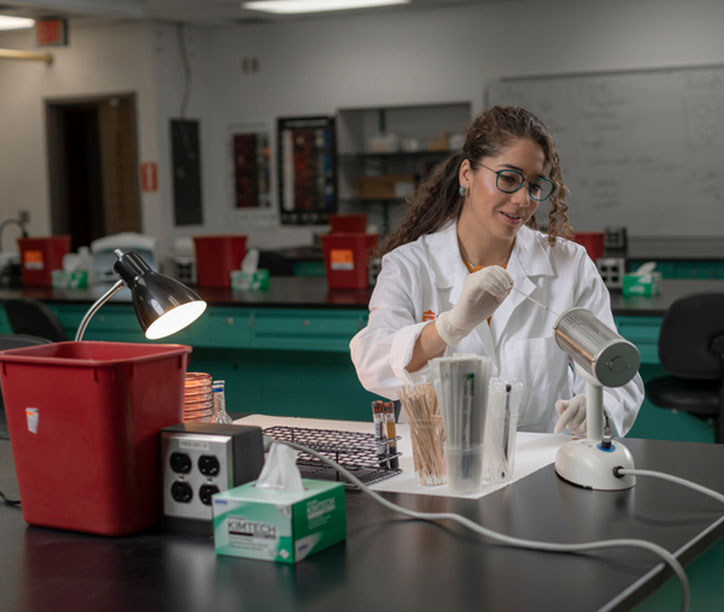Experimental and Developmental Therapeutics Program
- About Us
-
Cancer Care
-
Our Cancer Programs
- Adolescent and Young Adult Cancer Program
- Blood Cancer & Hematological Malignancy Program
- Blood Disorder (Hematology) Program
- Breast Cancer Program
- Cancer Genetics Program
- Cancer Risk Reduction and Education Clinic
- Cardio-Oncology Program
- Childhood Cancer Survivorship Program
- Endocrine Tumor Program
- Eye Cancer Program
- Gastrointestinal (GI) Cancer Program
- Genitourinary Cancer Program
- Gynecologic Oncology Program
- Head and Neck Cancer Program
- Liver Tumor and Cancer Program
- Lung Cancer Program
- Neuro-Oncology (Brain Tumor) Program
- Neurofibromatosis Program
- Pediatric Neuro-Oncology Program
- Pediatric Oncology Program
- Pediatric Sarcoma Program
- Pediatric Thrombosis Program
- Radiation Oncology
- Sarcoma Cancer Program
- Skin Cancer Program
- Supportive Cancer Care Program
-
Screening and Diagnosis
- Cervical Cancer Screening Guidelines
- Colorectal Cancer Screening
- Endometrial (Uterine) Cancer Screening Guidelines
- Hepatitis and Cancer
- HPV Vaccine and Screenings
- Liver Cancer Guidelines
- Lung Cancer Screening
- Mammogram
- Ovarian Cancer Screening Guidelines
- Prostate Cancer Screening Guidelines
- Skin Cancer Screenings
- Sun and Skin Safety
- Tobacco Use and Cancer
- Skin Cancer Screenings
- Cancer Genetics Program
- Cancer Survivorship Program
- Cancer Treatments
- Conditions
-
Our Cancer Programs
- Clinical Trials and Research
- Donate and Volunteer
- Education
- Patients and Families
- Appointments
- Doctors and Locations
-
Community Outreach and Engagement Program
- Message from COE Leadership
- South Texas Cancer Burden and COE Areas of Work
- Our COE Impact
- COE Community Advisory Board
- COE Publications
- Avanzando Caminos (Leading Pathways) Study
- Estudio Avanzando Caminos (Leading Pathways)
- San Antonio Firefighters Cancer Prevention Program
- STAR Immunotherapy Study
The overall objective of the Experimental and Developmental Therapeutics Program is to discover, develop and test new and existing drugs. Our efforts give patients access to innovative care options close to home.
Mays Cancer Center, home to UT Health San Antonio MD Anderson Cancer Center, is a leading cancer center in Central and South Texas. Our efforts are making care more precise and minimizing side effects that may compromise patients’ quality of life.
Drugs (therapeutics) that destroy cancer cells can also damage healthy cells, leaving you with side effects. We are looking to change this by discovering and testing new targeted therapeutics in our labs.
About our Experimental and Developmental Therapeutics (EDT) Program
Our team includes experts in all aspects of cancer drug development, including clinical trials. Specialists in drug discovery, structural biology, medicinal chemistry, immunology and health data (informatics) work together. Having so many specialties in one program accelerates our ability to create and test new therapeutics.
EDT is one of the many ways we are advancing care as the only National Cancer Institute (NCI)-designated cancer center in Central and South Texas. We are also investigating cancer risks that are unique to our community and finding ways to help manage them. Find out more about our other cancer research programs.
How our EDT Program is advancing cancer care
We are making therapeutics more effective while reducing side effects that may make you feel sick or tired.
Our efforts include:
- Basic science: We conduct lab studies to identify and test substances that interact with specific elements within cancer cells (therapeutic targets). We are also studying cell changes (biomarkers). These changes can tell us whether new drug therapies are benefiting patients.
- Drug development: Our researchers combine basic science findings with health data to develop new cancer drugs. In some cases, these drugs are available to eligible patients at Mays Cancer Center up to 15 years before they are on the open market. Find out more about our Institute for Drug Development.
- Other research: We are exploring new approaches for using existing drugs. These efforts include determining whether drugs approved for other diseases or one type of cancer may be effective in treating a different cancer.
- Clinical trials: After new therapeutics have undergone many rounds of lab testing, we bring them to eligible patients through clinical trials. As a trusted research center, we offer years of experience and carefully follow all trial requirements to help keep eligible patients informed and safe. View a list of our cancer clinical trials.
Focus areas and care innovations
Our work is changing the way doctors care for patients across the many types of cancer we treat.
We have achieved notable findings in:
- Brain tumor and cancer care: We are developing a novel therapy to protect healthy brain tissue in people with glioblastoma, a fast-growing cancer. This therapeutic makes it possible to deliver targeted radiation to the tumor while preventing damage to nearby healthy cells. Find out more about our brain tumor program.
- Breast cancer therapy: Our researchers completed early studies demonstrating how an FDA-approved antidepressant inhibits the growth and spread of certain breast cancers. We are now analyzing compounds within the antidepressant to determine if it might be effective as a prevention strategy. We are also exploring how to reduce the dose of chemotherapy drugs for cancer patients without affecting outcomes. Find out more about our breast cancer program.
- Immunotherapy: We are uncovering new knowledge about how our immune systems respond to cancer. This information is accelerating the development of immunotherapy drugs for specific types of cancer. Get more information about immunotherapy.
Explore Mays Cancer Center
Find out more about how our research programs are helping us advance cancer care in South Texas and across the country.
Learn more about our NCI designation
Our National Cancer Institute (NCI) cancer center designation brings leading research programs. It also extends the range of our clinical trial offerings, for eligible patients
Meet our research team
Our research team includes cancer experts from different medical specialties and scientists who share a commitment to advancing care and outcomes.

 Close
Close
